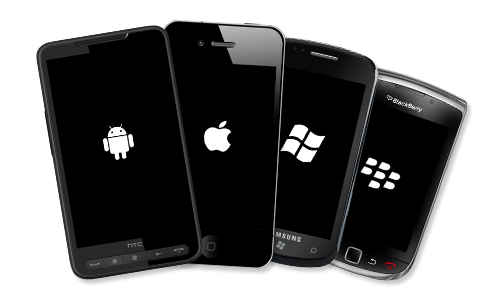The mobile development now days became more challenging with the exciting number of Smart Phone holder that exceeded 3.4 billion user in 2013; this led the developers to come up with a diverse solutions for the developing and designing for the Mobile platforms.
Concurrently Android is taking the lead of the market share beside other competitors like iOS, Windows Phone and BB OS (BBX), not to forget other breathable OS for the mobile such as Firefox OS (still developer version), Tizen (Linux-based), Symbian (quite outdated) and others.
From the users view it is pleasure to have several options to pick up from but from the developers aspect it is a headache especially when it comes to enterprise section where the developer required to have the ability to deploy the applications on several platforms to fulfil the market needs. Well the issue is about having different coding style, different requirements for each platform and different programming language; for instance Android requiring a knowledge in Java beside XML to develop an application where for Windows Phone it is more about being familiar with Microsoft Environment and using C#, asp.net or any familiarities.
From that it was an essential to have a Cross-Platform technologyto Code Once and Run Multiple times or Write Once Run Anywhere (WORA) and basically this considered as a revolution in the Mobile industry where the developer have to code only one time in a particular software and then deploy it for multiple platforms. So far from my exploration I found the most popular and favourable platforms for Mobile cross-platform is as the following:
- PhoneGap
- RhoMobile
- Appcelerator
- Xamarin
- jQuery mobile
- QT
Well there are many others available for the developer but these are from my experience what I saw is favoured, it does help to reduce the development time, efforts and so but yet there are small issues need to have scope on.
1- Developing Style:
Most of the software tighten the developer to use web technologies only to develop like HTML, CSS and JavaScript which I categorise them as Designing rather than coding and sometimes the developer have wreck knowledge in that field; expect Xamarin which it does have more concern on using Coding style using C# or embedded on Visual Studio to operate.
2- User Experience (UX):
The comparison between the Cross-platform app and Native app is lose-to—win comparison because using cross-platform applications it is been noted that the consistency still frequent since the software is converting from code to code and the most obvious criteria was the Resource management was considered poor where it was generating high load on the CPU, memory, occupied size or the OS itself.
3- Accessibility and Interoperability:
The developer cannot simply think any code will be successful and will be able to run on the platforms, because the Native application will be designed specifically and will have access to the kernel level (bottom layer) which is dealing with the hardware of the device itself while using Cross-platform is able to use the application framework level or libraries level as max (intermediate layers); that was as an Android example; Accessing the built-in features, think of some features that are only for certain devices or manufactures like NFC technology where both Windows Phone and Android does support NFC while iOS considered it as outdated technology so it is not possible to deploy for iOS. Another example is the Finger print feature some of the latest mobiles have like iPhone 5s or HTC One MAX, others hardware as well are applicable like camera, sensors or the keys because it is not easy to access to the Hardware Abstraction layer. This level will enforce the developer to go back and code for the certain OS.

4- Customisation:
All the devices and OSs have different features, once deploy the application it will be like a dynamic template to be formed based on the hosted OS, however according to my experiment the customisation was not an eye-sight option to do it for any device, like the developer want to allow the application to interact with the wallpaper in the Windows Phone only not other platforms; remember again you are writing once to deploy multiple times and that restrict the developer to “general” deployment not specialised.
5- Security:
Not much to discuss on this point but always the hybrid or generated will face a lack of security because it does not offer an options as much as the native development approach.
The mobile cross-platform technology can be your friend if you are aiming to deploy a general applications or light application or which does not require rich user experience, it is a recommended option for whoever is planning to develop in nutshell mode without touching the surface and mostly it is useful for the enterprise to meet the needs. But if you are going deep and looking for some features and a concrete solid development or have an advantage of the OS capabilities it is better to find a suitable platform to start develop on. this article was based on “Survey, Comparison and Evaluation of Cross Platform Mobile Application Development Tools” for Isabelle Dalmasso, it is available through IEEE link.
Will try to make tutorials later on upon support in the future.






Recent Comments